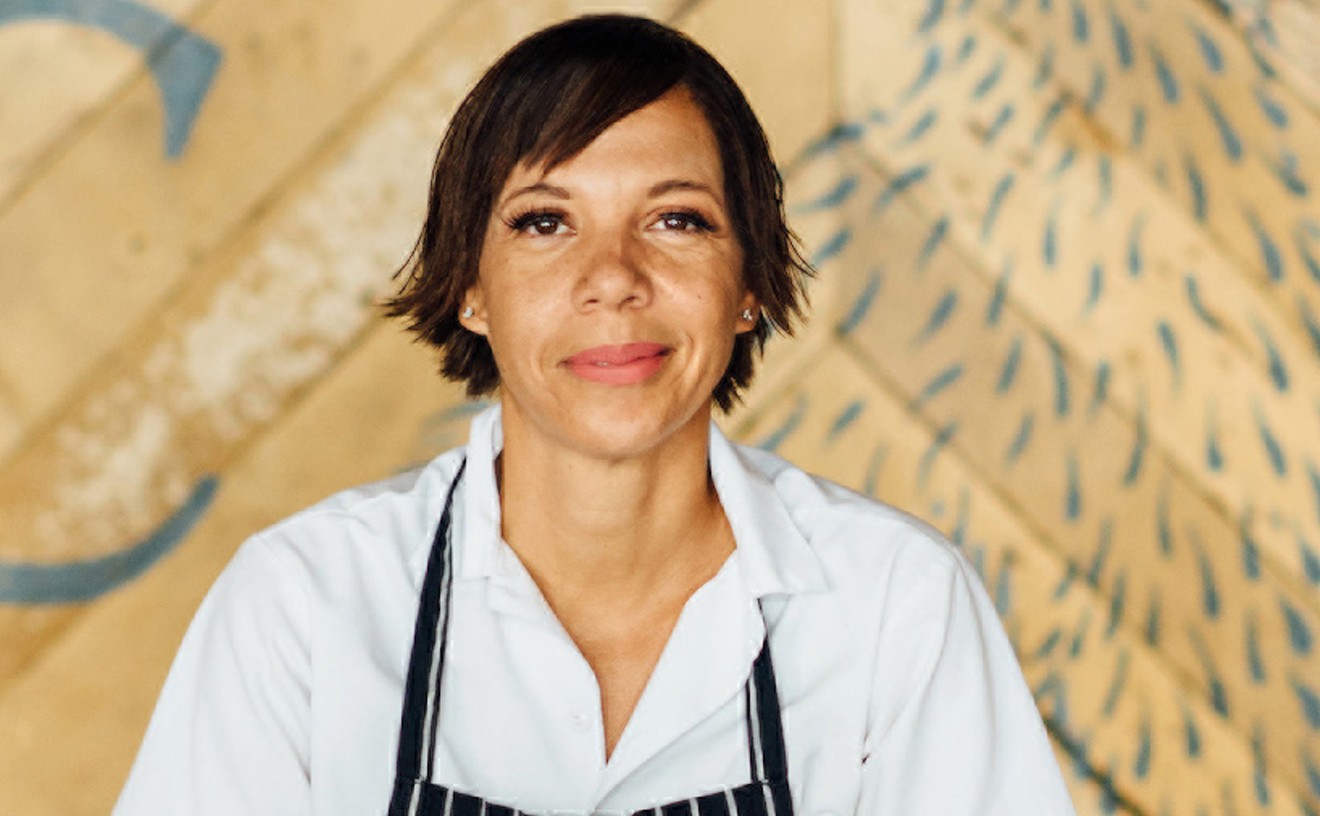William Ltaif wants his restaurant, Smart Bites to Go, off the industrial food grid. But doing so in the middle of the city isn't so easy.
About two years ago, the longtime celebrity health and fitness coach, along with partner Mari Vila, who specialized in preparing the kind of restricted meals hospital patients had to eat, decided to buy a once-decrepit building in Allapattah with plans to change how the city ate and what it meant to be a restaurant.
At first glance, it's another one of your "whole food" cafés, similar to Miami Beach's Dirt or Tim Andriola's now-defunct Basil Park. There are simple roast chicken sandwiches ($7.50) slicked with Dijon mustard and topped with avocado and a spicy pickled pepper relish. There's also a daily rotating list of protein or vegetable-topped bowls ($8 for a regular, $10 for a large). Recently, the choice was between a cowboy-style bowl — served with smashed potatoes, turkey bacon, red beans, sautéed bell peppers, and a house barbecue sauce — or one with Middle Eastern leanings including chickpeas, eggplant, a hefty dose of chopped parsley, and a zaatar-infused dressing.
Yet when you stumble across the menu's black bean cricket burger ($9.50), you know something is different. The burger itself is about as innocuous as can be, with a flavor similar to most vegetarian patties you've tried but with a texture somewhere between one of those and a dense crabcake. It arrives on a whole-wheat bun, hiding under a generous scattering of spinach and waiting to be smeared with the spiced dressing sitting nearby.
The crickets arrive whole from an organic farm near Sante Fe, New Mexico, says Vila, who runs the kitchen. They toast them, filling the kitchen with the scent of roasted peanuts, before grinding them into a flour that's mixed into the burger blend.
"Everyone knows how many people there are going to be on the planet and how good of a source of protein bugs can be," Vila says. "Even a lot of vegetarians I know are changing over to eat bugs."
Such concern for health, and the health of humanity as it enters a tenuous uncertainty, snakes throughout the restaurant. Dozens of medicinal herbs cover the curved garden entrance to the rust-orange restaurant. There are a dozen kinds of oregano jutting out from a rainbow that can be used to treat everything from an ear infection to an upset stomach. A bougainvillea vine, good for soothing a cough, Ltaif explains, climbs up one wall.
"I'm Mexican, and we've known for centuries the medicinal value and importance of plants," Ltaif says. "Now, finally science is realizing it, doing research, and you see everyone is getting back to basics. All those drugs they sell, that shit fucks you up."
On the other side of the restaurant is a sprawling, fenced-in courtyard he's been trying to turn into a self-sustaining farm. There's an L-shaped aquaponics setup where all manner of young herbs and greens sprout from a makeshift PVC-pipe setup. At each end is an oversize fish tank filled with graying, slow-moving tilapia. The idea is to use the water in the tanks, pulled from an onsite, 120-foot-deep well, to fertilize the growing system, creating a kind of symbiotic relationship between the plants and the fish. At some point, Ltaif says, he hopes to be able to grow enough fish to supply the restaurant.
Beyond the budding system is a handful of planter beds filled with purple fringed-dinosaur kale ready to be picked for the restaurant and an upcoming event. When his barebones staff of helpers replant it, they'll do it in conjunction with a gardening class.
"We want to show there can be a sustainable business model for this kind of restaurant," he says. "They have a fancy name for it — regenerative agriculture — but it's all just a bullshit term for how things were done back in the day."
For more, follow Zach on Twitter or Instagram.
[
{
"name": "Air - MediumRectangle - Inline Content - Mobile Display Size",
"component": "19274298",
"insertPoint": "2",
"requiredCountToDisplay": "2"
},{
"name": "Editor Picks",
"component": "17482312",
"insertPoint": "4",
"requiredCountToDisplay": "1"
},{
"name": "Inline Links",
"component": "18711090",
"insertPoint": "8th",
"startingPoint": 8,
"requiredCountToDisplay": "7",
"maxInsertions": 25
},{
"name": "Air - MediumRectangle - Combo - Inline Content",
"component": "17482310",
"insertPoint": "8th",
"startingPoint": 8,
"requiredCountToDisplay": "7",
"maxInsertions": 25
},{
"name": "Inline Links",
"component": "18711090",
"insertPoint": "8th",
"startingPoint": 12,
"requiredCountToDisplay": "11",
"maxInsertions": 25
},{
"name": "Air - Leaderboard Tower - Combo - Inline Content",
"component": "17482313",
"insertPoint": "8th",
"startingPoint": 12,
"requiredCountToDisplay": "11",
"maxInsertions": 25
}
]











